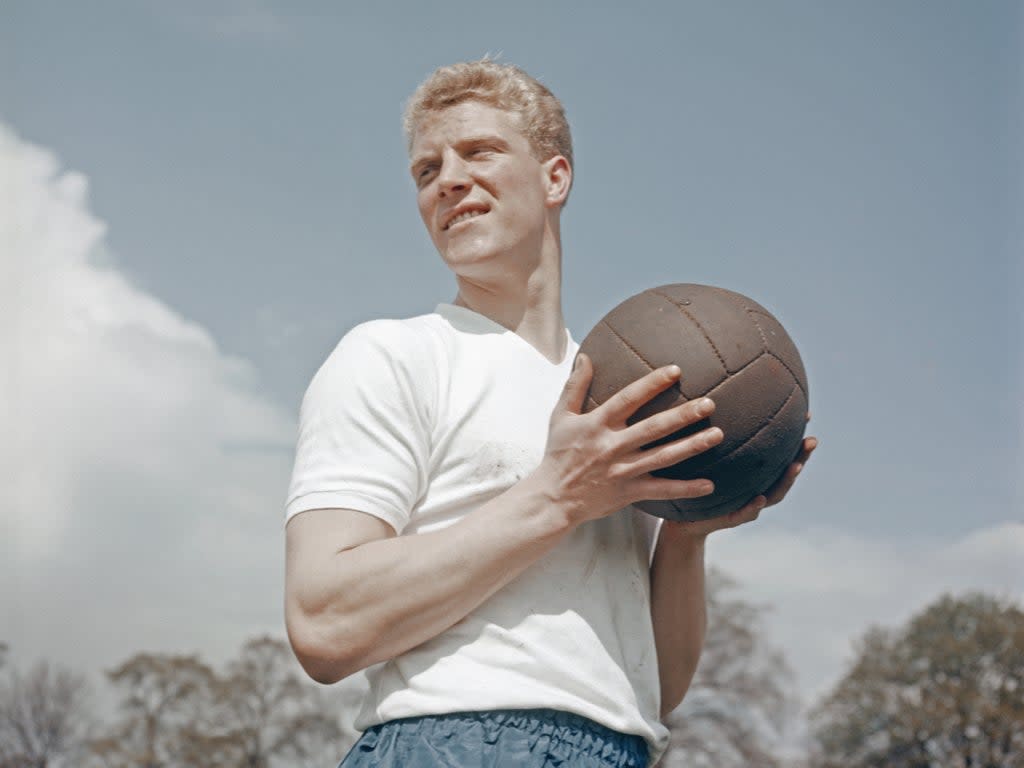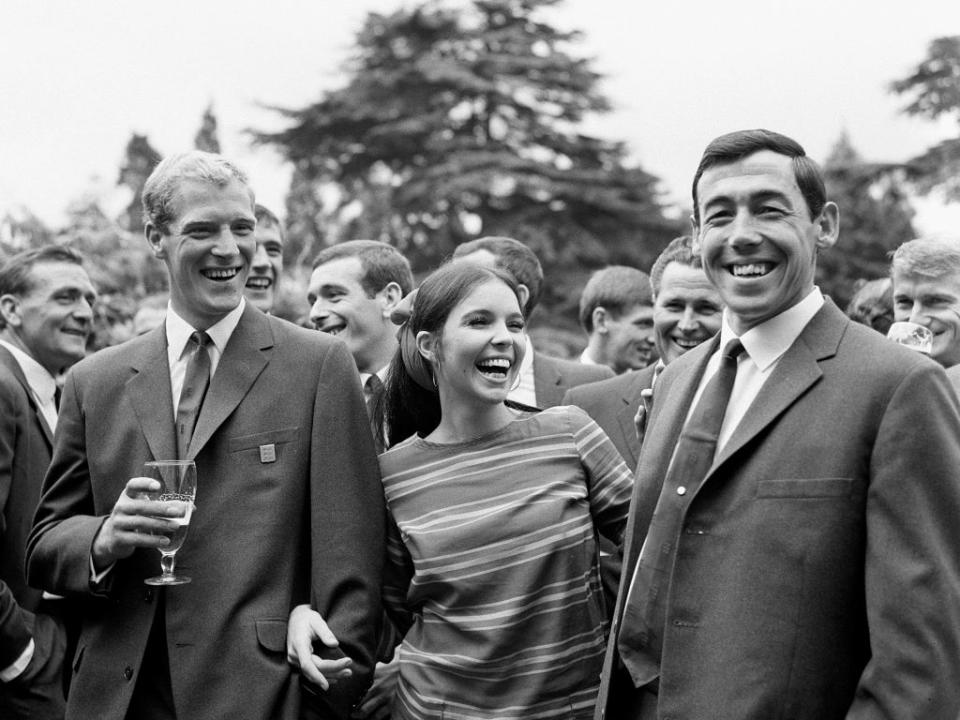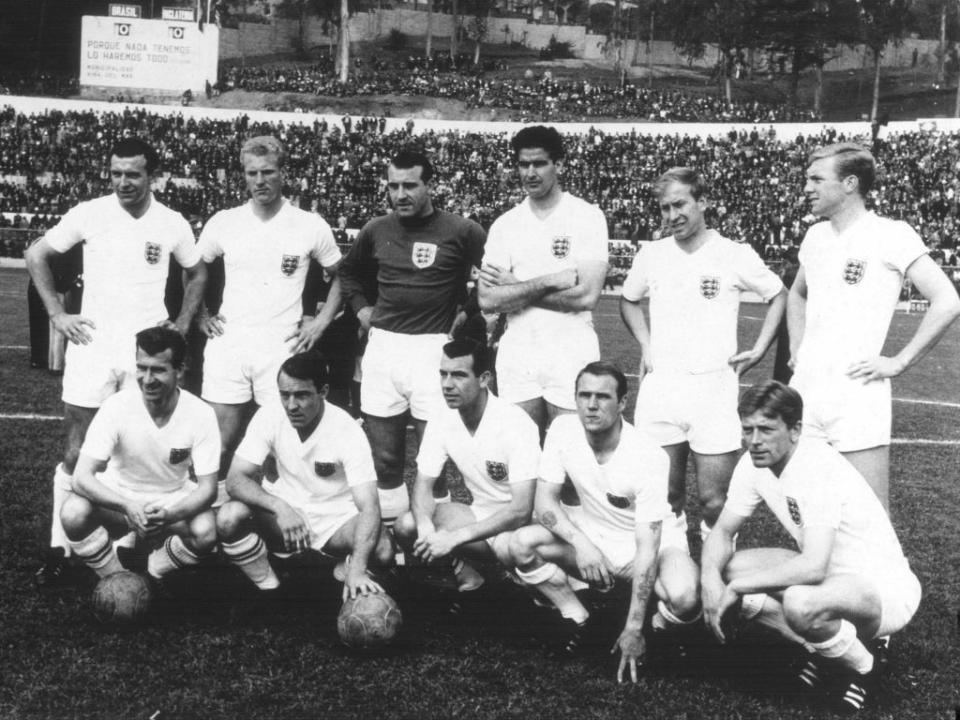Ron Flowers: Wolves legend who narrowly missed out on 1966 glory

Tall, blonde and handsome, Ron Flowers, who has died aged 87, was one of the best known and most accomplished players in the long and illustrious history of Wolverhampton Wanderers Football Club. Between 1952 and 1967, this big and powerful attacking wing-half helped propel the Molineux side to three First Division titles and victory in the 1960 FA Cup Final.
At international level, his ability to read the game saw him win 49 England caps that included a run of 40 successive appearances. Appearing at the 1962 World Cup Finals in Chile, he then became a squad member for the winning 1966 campaign, narrowly missing the chance to play after Jack Charlton was deemed fit to participate.
The middle son of a coal miner, born in the South Yorkshire pit village of Edlington, Ronald Flowers inherited a strong family sporting tradition. His uncle George was a stalwart of the Doncaster Rovers. His younger brother, John, later spent five seasons with the club. Ron, too initially played as a junior while serving an apprenticeship in the local railway yard. Subsequently rejected as being too slight to survive in professional football, he moved to non-league Wath Wanderers, then serving as a feeder club for First Division Wolverhampton Wanderers. When Wolves manager Stan Cullis recognised his potential, Flowers joined the midlands club in 1951 after completing his national service in the RAF.
Immediately making his mark by scoring on his First Division debut during the 1952 season as Wolves lost 5-2 to Blackpool, Flowers quickly established himself at the heart of the side. As powerful in the air as he was with the ball at his feet, Flowers generally played at left half with captain Billy Wright alongside him at centre half. Either Eddie Clamp and later, Bill Slater were regular partners on the right flank.
Each became an integral part of the team’s engine room, supplying the pace and power that underpinned the exhilarating brand of football so successfully pioneered by their innovative manager. While often decried by their critics, the team’s long ball tactics were simple but effective, helping them capture the First Division title in the 1953-4 season. For the rest of that decade, the club was in a constant battle for the top honours with Matt Busby’s Manchester United.

With the team scoring 103 goals when again claiming the league title in 1958, 12 months later, proving even more prolific when totalling 110, Wolves successfully retained their title. Narrowly missing out on a League and Cup double in 1960, after losing the League title to Burnley by a mere point, consolation came in front of 100,00 spectators at Wembley with a comfortable 3-0 victory in that year’s FA Cup Final. With no substitutes allowed in those days, Blackburn were forced to play most of the game with only 10 men, with full-back Dave Whelan breaking his leg following a clash with Wolves winger Norman Deeley.
The team also pioneered a trail into Europe with a popular series of floodlit friendlies against overseas clubs such as Honved and Real Madrid. While doing much to revive the prestige of English football, these games also provided a template for future European competitions.
After winning two England under-23 caps, Flowers made his full England debut, aged 20, in Paris in May 1955, losing 1-0 to France. Struggling with nerves, he earned the particular ire of winger Stanley Matthews, who wanted the ball played directly to his feet, rather than Flowers’ penchant for playing long balls for the winger to run on to.
It would be another three years before he earned a recall. Returning to the England team in a 2-2 draw against Wales, he remained ever-present over the course of the next five years. Captaining England on three occasions, during the game against France in October 1962, he had the distinction of scoring England’s first goal in the European Championships.

Two came during the 1962 World Cup in Chile. Having helped England defeat Argentina to reach the quarter-finals, they then lost to Brazil, the eventual winners. Four years later, he became the oldest member of the England squad for the 1966 World Cup. Appearing in a warm-up game against Norway, but not during the tournament itself, he did, however, come close to playing in the final.
Taken aside the night before and told by manager Alf Ramsey that centre half Jack Charlton was doubtful because of a heavy cold, Flowers always knew deep down that there was no way that “Big Jack” would miss such a vital game. Instead, Flowers ended his international career watching from the bench, his 49 caps bringing him 10 goals.
By then, operating as a more defensive central defender, both player and club now found themselves plying their trade in the Second Division. Having helped the team get back into the First Division, in 1967, following 515 games and 37 goals, Flowers took his leave of Molineux. Rejecting a proposed move to near neighbours, Aston Villa, instead Flowers dropped down to the Third Division, becoming player-manager of Northampton Town.
After making an initially bright start, a disastrous end to the 1969 season brought relegation to the Fourth Division. Subsequently appointed player-coach of Shropshire Southern League side, Wellington Town, soon renamed as Telford United, there he won an FA Trophy medal as a manager and a runners-up medal as a player.
Bowing out of the game in 1971, having invested his World Cup bonus wisely, he later opened what became a highly successful sports goods and schoolwear retail business in Wolverhampton, which is now run by his two sons. Following a somewhat belated Football Association-led campaign, in June 2009, along with the other squad members and officials who missed out on a medal at that 1966 World Cup Final itself, Flowers was delighted to receive his on a visit to No 10 from the then prime minister, Gordon Brown. A founder member of the Wolverhampton Wanderers Former Players’ Association and the author of a delightful autobiography entitled, For Wolves and England, Flowers was later elected a vice president of the club. Earlier this year, he was awarded an MBE.
He is survived by his wife, Yvonne, and sons, Glenn and Neil.
Ron Flowers MBE, footballer and businessman, born 28 July 1934, died 12 November 2021
Read More
Roger Hunt: Uplifting footballer and part of England’s 1966 World Cup winning team
Ian St John: Footballer who gave a new dimension to Shankly’s Liverpool

 Yahoo News
Yahoo News 
